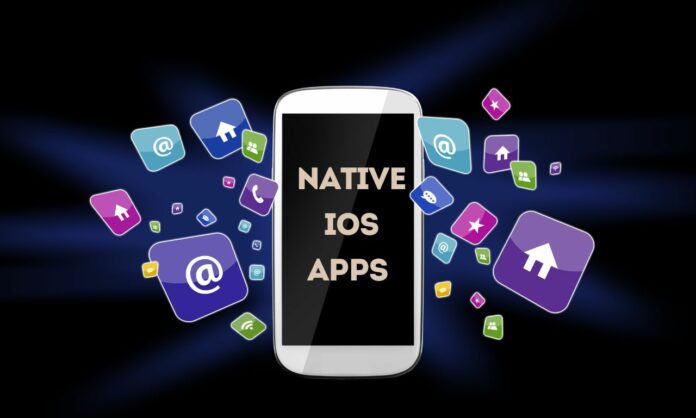iOS, as one of the two mobile platforms, always attracts the most accomplished developers and most ambitious app projects. If you are going to launch your mobile app, you may want to start with this platform known for the great scope of monetization besides flaunting a stigma of prestige and accomplishment.
For building superb iOS native apps and apps that behave like native ones, you don’t have too many coding languages at your disposal. Here we have picked the top programming languages used by developers worldwide to build iOS apps.
Table of Contents
Objective-C
For the first breed of iOS apps, Apple used Objective-C, and for years, it has been the common language for developing iOS apps. Objective-C, like C++ and C#, is a variant of the C language, one of the most dominant and evolved programming languages. This is why the core structure and syntax of the language is similar to C.

Strengths
- Objective C provides a consistent user experience that lasts long.
- Objective C allows dynamic typing to increase flexibility with respect to using class.
- Objective C comes with comprehensive support for all apps using the older versions of the language.
- Objective C, being used for nearly a decade, offers great stability.
Weaknesses
- In comparison to the latest Swift and other options, it offers fewer functionalities.
- Objective C holding older security protocols is more vulnerable to security threats and breaches.
- Objective C is now used only by a handful of developers and hence is losing community support.
- Objective C code makes it difficult to read and comes with a steep learning curve.
Swift
Swift is the latest and most updated programming language introduced by Apple as the successor to Objective C and is now used for iOS app projects. Swift is easy to learn, easier to code, richer in features, and enriched with more security tools and protocols. No wonder almost all leading iOS apps use Swift for developing iOS apps now. For any mobile app development company building iOS apps, Swift’s expertise is a basic and unmistakable prerequisite.

Strengths
- Swift ensures fast-paced development thanks to simple and easy syntax.
- Swift is an open-source language and supported by a huge developer community.
- Swift is known for easy to read and easy to write coding structure.
- With Swift maintaining the code is also easier.
- Swift based apps support all iOS devices.
Weaknesses
- Swift does not offer support to older iOS versions.
- Swift is still a comparatively new language and hence has a problem for enjoying the trust of developers.
- Swift is known for less or zero interoperability with tools and languages from third-party publishers.
Python
Python is already regarded as one of the most popular programming languages for different niches of apps, particularly performance-savvy banks and financial institutions. This general-purpose, open-source programming language is widely known for dynamic, imperative, object-oriented, and functional programming.

Strengths
- Python offers a very easy syntax as simple as plain English language.
- Python is a truly versatile language and ensures speedier development.
- Python comes loaded with a rich set of useful libraries.
- Python is great for building the latest artificial intelligence and machine learning algorithms.
Weaknesses
- Python is a big footprint language consuming a lot of memory.
- In comparison to C and C++, Python is slower in pace.
- Python has an array of limitations for accessing databases.
- Python is widely known for runtime errors.
C#
C# language launched in 2000 is a widely acclaimed, simple, flexible, and object-oriented, open-source language that is used for a wide variety of iOS apps. Countless successful iOS app projects have used C#.

Strengths
- It is a simple syntax language for iOS development.
- It can collect garbage automatically.
- C# can address the memory leak problem.
- C# offers great programming support.
Weaknesses
- C# is far less flexible.
- For running an app, it needs only a windows-based server.
Xcode
Released for the first time way back in 2003, Xcode has emerged as the most popular IDE for macOS, iOS iPadOS, watchOS, and tvOS apps. The uniqueness of Xcode lies in the availability of Command Line Tools, allowing UNIX-style development.
Strengths
- Xcode offers a very easy to use UI builder.
- Xcode allows building highly expressive code.
- Xcode allows developers to learn profiling and heat analysis easily.
- Xcode offers a simulator that allows simultaneous app testing.
- Over the Xcode has been used in countless successful app projects and boasts of a large developer community.
Weaknesses
- Xcode comes with an outdated Objective C, which is really frustrating for uses.
- Xcode doesn’t come packed with inbuilt support for different environments.
- Xcode makes it difficult and complicated to export an app from one device to another.
Conclusion
From the above description, it is quite evident that each of these languages has its strengths and weaknesses, and no one language can be perfect in every respect. Though Swift is now the most preferred programming language by Apple and its worldwide developer community, Swift is destined to grow in popularity in the years to come.
To code your app from start to finish and follow the best practices, developers should have a little Objective C background besides Swift’s expertise. While Swift will rule the iOS app development in the future, others will not simply vanish.
